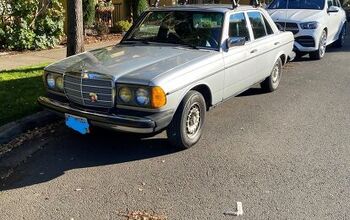McLaren May Sell Stake in F1 Team to Improve Chances of Survival

With McLaren scrounging for cash and cutting 1,200 positions from its ranks in the hopes of prolonging its own existence, it would be an understatement to claim 2020 has been unkind to the automaker. Most nameplates are having a rough year. And almost all are seeking ways to turn things around before the situation becomes untenable and their fate becomes sealed.
The plan for McLaren involved a £150 million loan from the National Bank of Bahrain and more than a few empty seats.
Autocar now claims the brand has even considered selling part or all of McLaren Applied and Automotive. While the outlet admits this likely hinges on its evolving financial situation, a company insider confirmed advanced discussions are focused on selling a minority stake in the Racing division.
The source also denied rumors that McLaren’s automotive division is on the table, though we imagine everything came up in conversation at least once, given the company’s current balance sheet.
From Autocar:
McLaren’s bond holders and board are believed to have given the go-ahead to explore offers of interest in this last week. When approached by Autocar, a McLaren spokesman said: “We are considering the option of additional investors in the Racing business.”
The most recent insight into the McLaren Group’s value — comprising all three divisions of the firm — came two years ago, when Michael Latifi, father of Williams F1 racer Nicolas Latifi, bought a 10 [percent] share for just over £200m, suggesting a valuation of more than £2 billion at that time. However, with the upcoming F1 cost cap imminent, potentially making the team more profitable, it’s possible that valuation, plus the team’s upturn in form, could raise the price of a share in the race team.
Parallel to this, a sale of Applied — a company that uses McLaren’s racing-derived expertise, particularly on data, technology and teamwork, and applies it to everyday industries, most notably in health and public transport – is also believed to be being discussed. However, that’s said to be complex, because of the firm’s reliance on its racing team links in order to thrive.
[Image: F1; McLaren]

A staunch consumer advocate tracking industry trends and regulation. Before joining TTAC, Matt spent a decade working for marketing and research firms based in NYC. Clients included several of the world’s largest automakers, global tire brands, and aftermarket part suppliers. Dissatisfied with the corporate world and resentful of having to wear suits everyday, he pivoted to writing about cars. Since then, that man has become an ardent supporter of the right-to-repair movement, been interviewed on the auto industry by national radio broadcasts, driven more rental cars than anyone ever should, participated in amateur rallying events, and received the requisite minimum training as sanctioned by the SCCA. Handy with a wrench, Matt grew up surrounded by Detroit auto workers and managed to get a pizza delivery job before he was legally eligible. He later found himself driving box trucks through Manhattan, guaranteeing future sympathy for actual truckers. He continues to conduct research pertaining to the automotive sector as an independent contractor and has since moved back to his native Michigan, closer to where the cars are born. A contrarian, Matt claims to prefer understeer — stating that front and all-wheel drive vehicles cater best to his driving style.
More by Matt Posky
Latest Car Reviews
Read moreLatest Product Reviews
Read moreRecent Comments
- Daniel J 19 inch wheels on an Elantra? Jeebus. I have 19s on my Mazda 6 and honestly wish they were 18s. I mean, I just picked up 4 tires at over 1000 bucks. The point of an Elantra is for it to be cheap. Put some 17s on it.
- ToolGuy 9 miles a day for 20 years. You didn't drive it, why should I? 😉
- Brian Uchida Laguna Seca, corkscrew, (drying track off in rental car prior to Superbike test session), at speed - turn 9 big Willow Springs racing a motorcycle,- at greater speed (but riding shotgun) - The Carrousel at Sears Point in a 1981 PA9 Osella 2 litre FIA racer with Eddie Lawson at the wheel! (apologies for not being brief!)
- Mister It wasn't helped any by the horrible fuel economy for what it was... something like 22mpg city, iirc.
- Lorenzo I shop for all-season tires that have good wet and dry pavement grip and use them year-round. Nothing works on black ice, and I stopped driving in snow long ago - I'll wait until the streets and highways are plowed, when all-seasons are good enough. After all, I don't live in Canada or deep in the snow zone.

































Comments
Join the conversation
McLaren's financial troubles were a predictable result of mediocre performance for most of the last decade. Between 2012 and 2013 Formula 1 seasons, they somehow went from hero (7 wins) to zero (zero wins), and it kept getting worse from then on. In 2014, they couldn't convert their access to the dominant Mercedes engine into good results, even though Williams with more modest resources but the same engine was frequently on podiums. And the 2015-2017 years were the rock bottom for the teams, but they managed to place all blame on the Honda engines. Only when the spell of mediocrity continued into 2018, now with Renault engines, they finally admitted that they screwed up. In 2018-19 they were basically a midfield team, fighting for the title of the best of the rest against Renault. It remains to be seen how they will do this season.